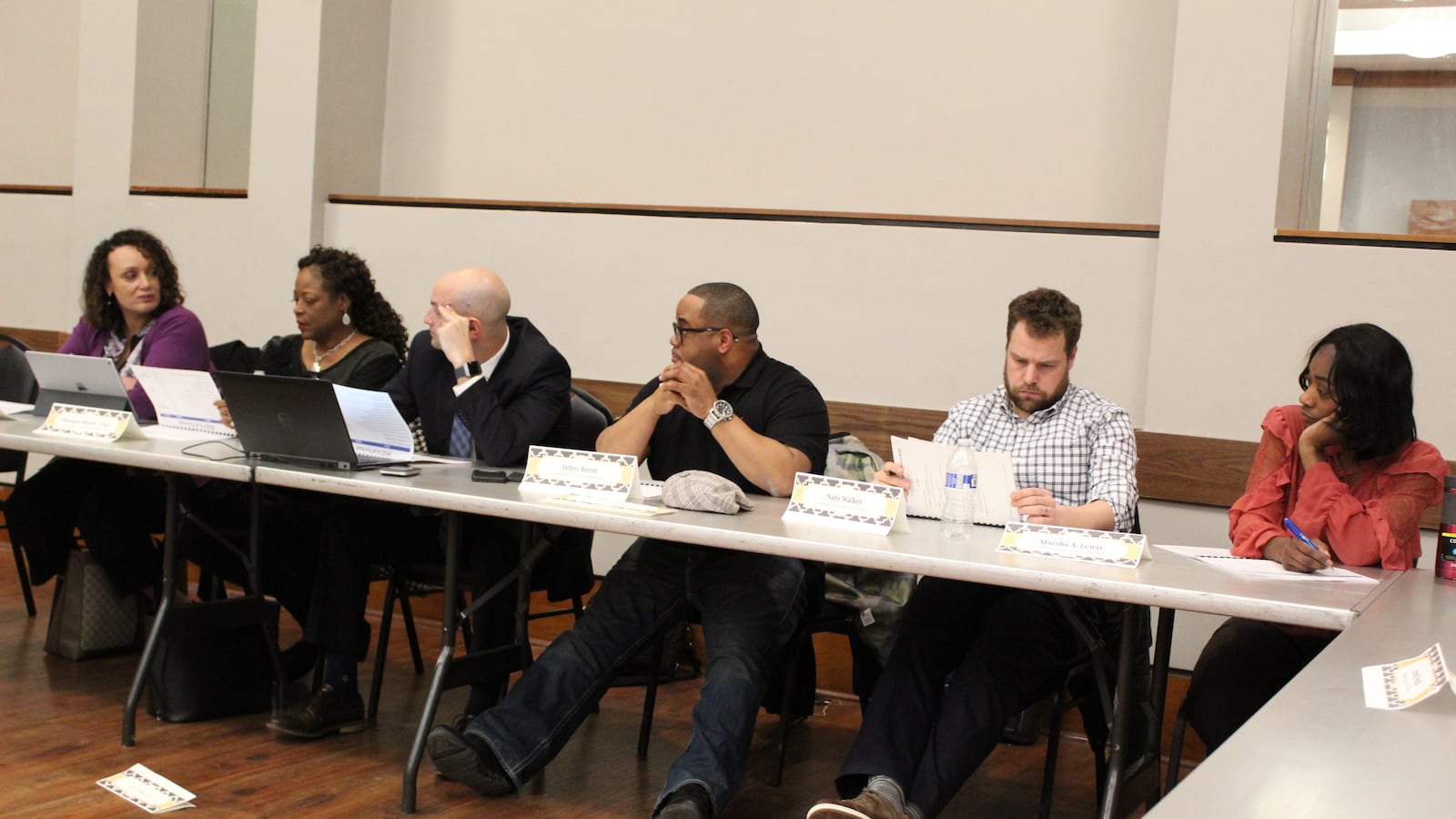As the new cooperative bus route that transports Detroit students to and from school expands to 14 schools next year, the citywide commission that oversees the program is looking for ways to make it more sustainable.
The board, appointed by Mayor Mike Duggan last year to create a partnership between district and charter schools, voted to add two charter schools to its 11-mile loop in its Monday meeting. That’s in addition to two schools from Detroit’s main district that the district board voted to add to route on Tuesday.
The bus route, which also transports students to a free after-school program, has been popular with parents, but the commission that operates it reported Monday that it still needs to raise $1.4 million for the 2020 fiscal year, which begins July 1. That includes $130,000 for the bus route. Adding four schools to the program sparked discussion about how to make it more sustainable. The program currently is free to eligible students, but their schools pay a fee of either $1,000 per student, or a flat rate of $25,000 a year to participate.
The bus route and after-school programs started as an experiment in the 2018-19 school year, but as more schools support the program, board member Tonya Allen, President and CEO of the Skillman Foundation, wants them to sign on for multiyear contracts. (Skillman is a Chalkbeat funder.)
Stephanie Young, executive director of the commission, agreed, noting that the current yearlong contracts don’t have to be the standard.
“When we first started, no one knew what it was, how it was going to work…The evidence shows that parents and children love it, and now we just have to dial it back up,” said Young.
Duggan’s initial goal was to help increase enrollment in city schools, given that more than 30,000 children who live in Detroit attend school outside the city. Enrollment did increase by 532 students in the six district schools that were part of the pilot. But just 33 of the students were new to the district, Detroit Superintendent Nikolai Vitti said in a recent meeting.
The bus route was controversial when it was first proposed by Duggan in his 2018 State of the City address. Supporters of the Detroit Public Schools Community District worried it would lead to the district subsidizing charter schools, or steer students toward charters.
The new charter schools, Rutherford Winans Academy and Cornerstone’s new Lincoln-King Academy: Adams-Young Center campus, add to the commission’s confidence that the GOAL Line will continue to grow. But whether the commission can support that growth while still needing to raise funds remains a question.
“Having a multiyear commitment upfront would help to fund the activities,” said board member Matt Simoncini, the former President and CEO of the Lear Corporation.
But he wasn’t comfortable approving the budget without further conversation.
The group agreed to sign off on the budget pending the presentation from the financial committee of a solid back-up plan in case the commission doesn’t receive grant money by its August meeting. A spokeswoman for the commission said that it has “a strong fundraising pipeline,” and expects to meet its fundraising goal soon.
Rutherford Winans Academy’s administration was excited about the school’s participation, Young said.
“They said they wish they could have been a part of it the first year,” she told the commission on Monday. “And they’re looking to use GOAL Line as one of their primary sources for transportation.”
Correction: June 19, 2019 This story has been updated to correct the attribution on a quote. The quote “Having a multiyear commitment upfront would help to fund the activities” should have been attributed to board member Matt Simoncini.

